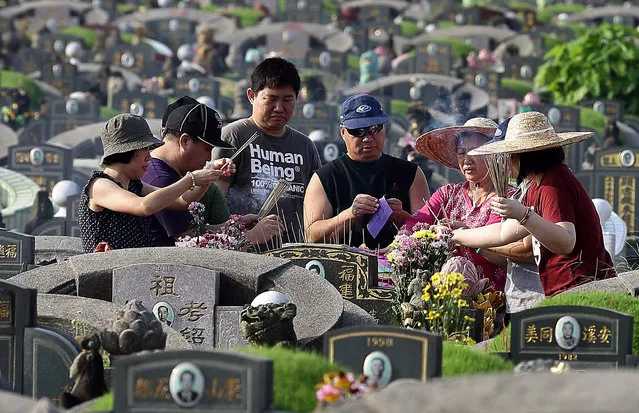
Family members visit the tomb of their loved ones to pay their respects and burn offerings at the Choa Chu Kang Chinese Cemetery during the Qing Ming Festival on April 4, 2013 in Singapore. Qing Ming, also known as Tomb-Sweeping Day, is an annual Chinese festival to commemorate the dead. Families mark the day by visiting and cleaning the graves of their ancestors, burning incense and paper money and presenting offerings such as food, tea, wine and joss paper accessories. (Photo by Suhaimi Abdullah/Getty Images)
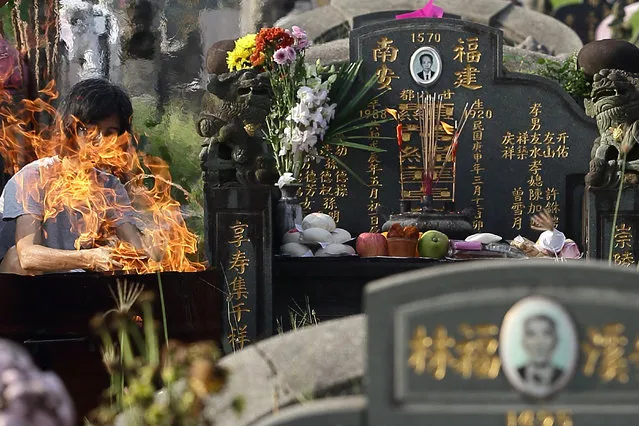
A woman visit the tomb of her loved ones to pay respect and burn offerings at the Choa Chu Kang Chinese Cemetery during the Qing Ming Festival on April 4, 2013 in Singapore. (Photo by Suhaimi Abdullah/Getty Images)
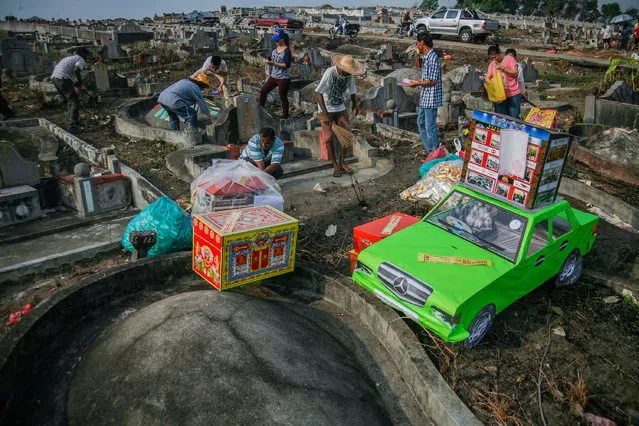
Malaysian Chinese clean grave sites of their ancestors during Qing Ming Festival on April 4, 2016 in Shah Alam, Malaysia. Qingming, also known as Tomb-Sweeping Day, on that day people will coming to cleaning the tomb and paying respect to the dead person with offerings their ancestors. This festivals will celebrated on April 4-6 every year. (Photo by Mohd Samsul Mohd Said/Getty Images)
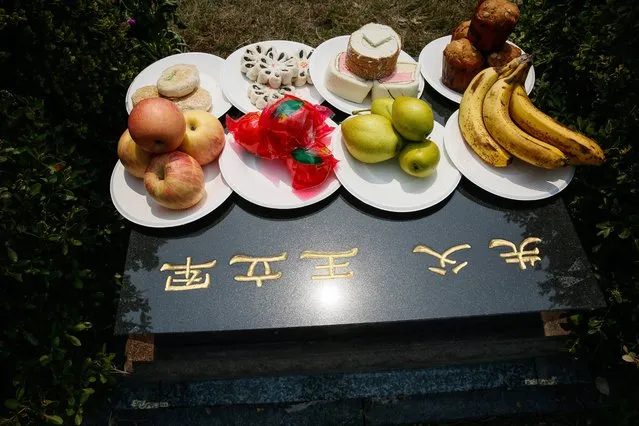
Bakery and fruits are placed on the gravesite left by Chinese people for their deceased relatives to mark the Qingming Festival at the Changqingyuan cemetery in Beijing, China, 03 April 2017. The Qingming Festival, also known as the Tomb-Sweeping Day, is marked by Chinese people by going to the cemetery to cleaning up tombs, bringing flowers, and making offerings to their ancestors. (Photo by Roman Pilipey/EPA)
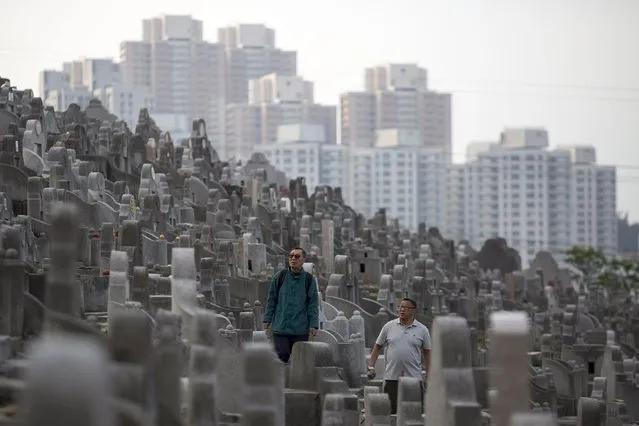
Two men look for a tomb among thousands of others in Diamond Hill cemetery in Hong Kong, China, 04 April 2017. (Photo by Jerome Favre/EPA)
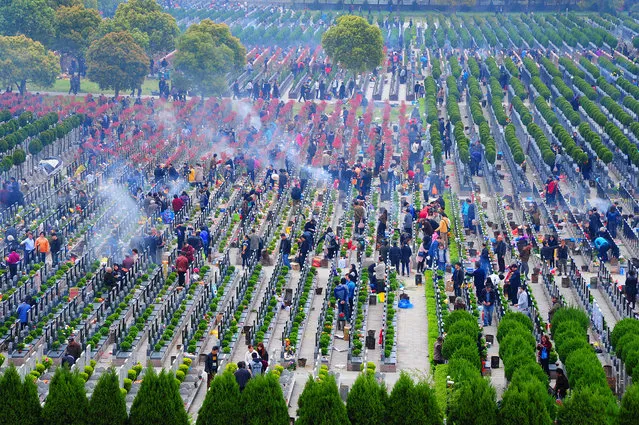
People visit a cemetery during Qingming Festival, also known as Tomb Sweeping Day, in Taicang, Jiangsu province, China, April 4, 2017. (Photo by Reuters/China Daily)

A couple clean their deceased relatives' tomb in Diamond Hill cemetery in Hong Kong, China, 04 April 2017. (Photo by Jerome Favre/EPA)
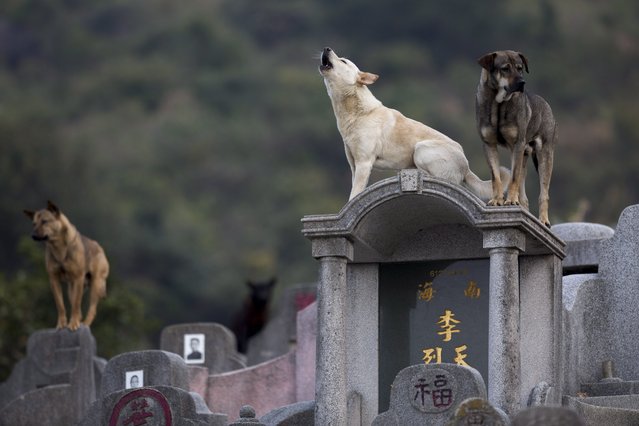
Stray dogs stand on tombs in Diamond Hill cemetery in Hong Kong, China, 04 April 2017. (Photo by Jerome Favre/EPA)
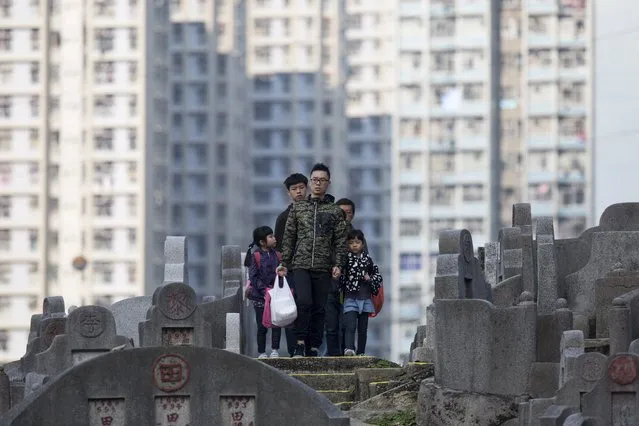
A family makes its way to their deceased relatives' tomb in Diamond Hill cemetery in Hong Kong, China, 04 April 2017. According to the lunar calendar, the Qingming Festival is observed on 04 April . The Qingming Festival, also known as Tomb-Sweeping Day, is marked by Chinese people by going to the cemetery to cleaning up tombs, bring flowers, and making offerings to their ancestors. (Photo by Jerome Favre/EPA)
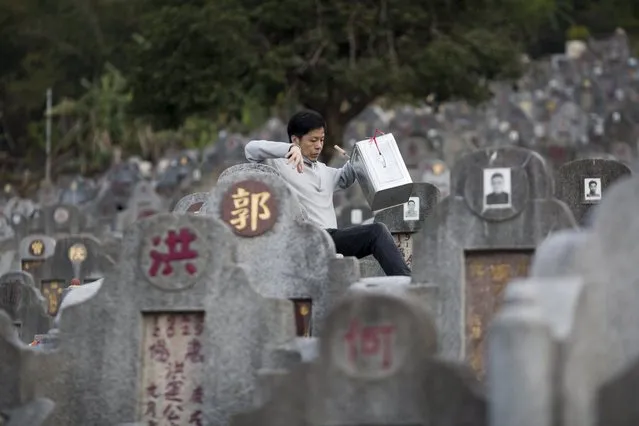
A man makes his way to his deceased relatives' tomb in Diamond Hill cemetery in Hong Kong, China, 04 April 2017. (Photo by Jerome Favre/EPA)
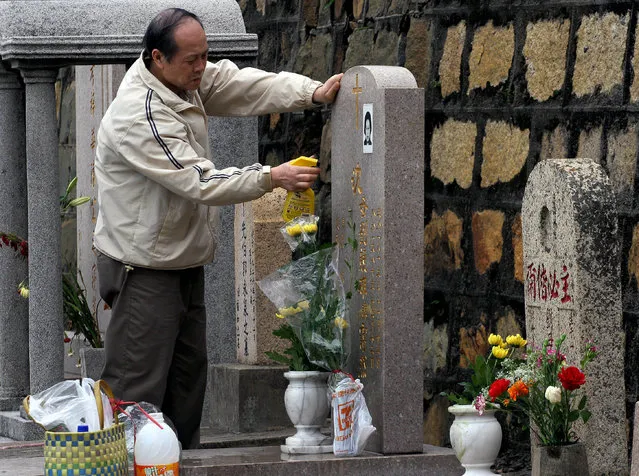
A man cleans the grave of a relative during the Qing Ming or Ching ming festival in Hong kong, 05 April 2007. Chinese around the world visit graves to pay respect to their ancestors in the buildup to the traditional Ching Ming festival. (Photo by Woody Wu/AFP Photo)

A family has lunch at a cemetery during the public holiday of “Ching Ming” in Hong Kong on April 4, 2008. The Qingming or Ching Ming Festival, which falls on the 104th day after the winter solstice, is also known as All Souls Day where people pay their respects to past ancestors by cleaning their graves, present offerings of food, and burning joss paper. (Photo by Mike Clarke/AFP Photo)
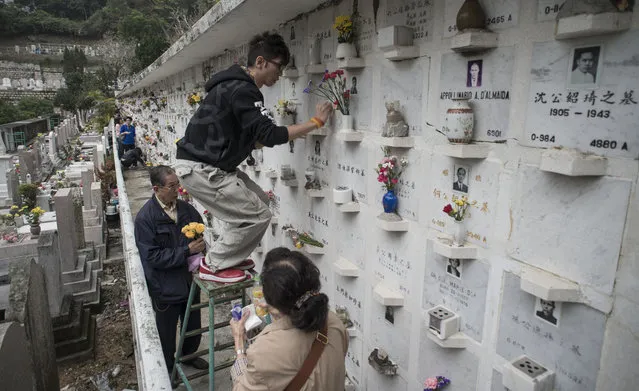
A man stands on a ladder as he cleans the area holding the urn of a loved on, at a Catholic cemetary during Ching Ming Festival, or grave-sweeping day in Hong Kong on April 4, 2013. Visiting the graves of ancestors during Ching Ming, this year marked on April 4, is an age-old Chinese tradition dating back 2000 years to the Han dynasty. (Photo by Antony Dickson/AFP Photo)
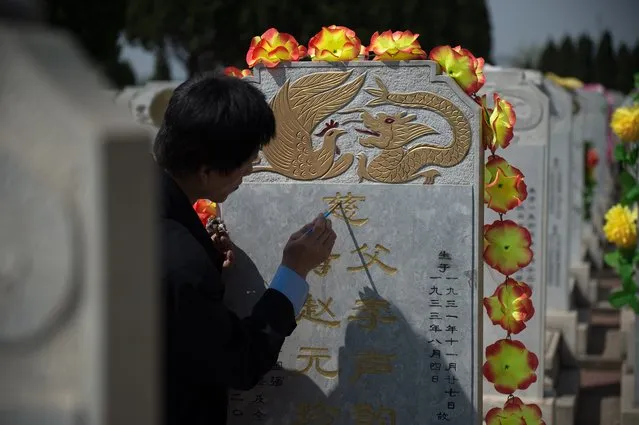
A man adds fresh golden paint on the inscription of the grave of a relative ahead of the annual Qingming festival, or Tomb Sweeping Day, at a cemetery in Beijing on April 2, 2017. During Qingming, Chinese traditionally tend the graves of their departed loved ones and often burn paper money, model houses, cars, mobile phones and other goods as offerings to honour them and keep them comfortable in the afterlife. (Photo by Nicolas Asfouri/AFP Photo)
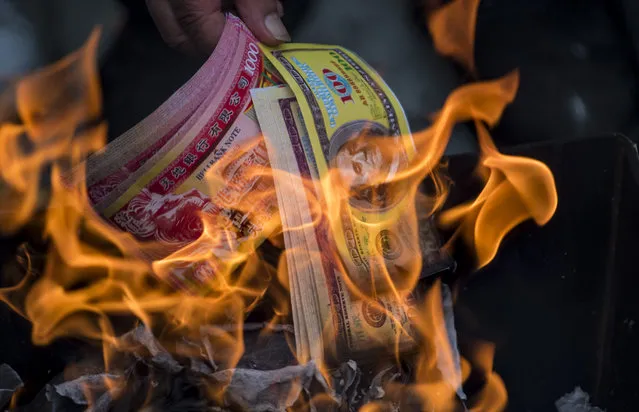
A man burns ghost money to pay his respects to his ancestors in front of a gravestone during the annual “Qingming” festival, or Tomb Sweeping Day, at a public cemetery in Shanghai on April 4, 2017. During Qingming, Chinese traditionally tend the graves of their departed loved ones and often burn paper money, model houses, cars, mobile phones and other goods as offerings to honour them and keep them comfortable in the afterlife. (Photo by Johannes Eisele/AFP Photo)
05 Apr 2017 09:30:00,
post received
0 comments
